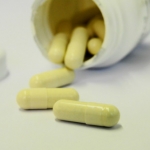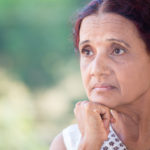Several recent studies have examined the impact of various types of physical activity on menopausal symptoms, including hot flashes, night sweats, and sleep disturbance.
Exercise (Sternfeld et al, 2013): As part of the MsFLASH research initiative, late peri- and postmenopausal sedentary women (40 – 62 years old) with frequent vasomotor symptoms (VMS) were randomized to exercise (n = 106) or usual activity (n = 142). The exercise intervention consisted of individual facility-based aerobic exercise training three times per week for 12 weeks. At 6 and 12 weeks, there were no differences between the two groups in terms of VMS frequency or bother. However, the exercise group reported greater improvement in insomnia symptoms (P = 0.03), subjective sleep quality (P = 0.01), and depressive symptoms (P = 0.04), but these differences were small.
Yoga (Newton et al, 2013): As part of the MsFLASH study described above, women were randomized to 12 weeks of yoga (n = 107) or usual activity (n = 142). 237 (95%) completed 12-week assessments. The mean baseline VMS frequency was 7.4 per day (95% CI, 6.6 to 8.1) in the yoga group and 8.0 per day (95% CI, 7.3 to 8.7) in the usual activity group. At 6 and 12 weeks, there were no differences between the two groups in terms of VMS frequency or bother. However, at week 12, women in the yoga group noticed improvement in their insomnia symptoms.
Leisure Time and Household Physical Activity (Lambiase et al, 2013): A subgroup of women (n = 52) participating in the Study of Women’s Health Across the Nation (54 – 63 years old) were assessed. These women reported vasomotor symptoms, and were not taking selective serotonin reuptake inhibitors or hormone therapy. Women with VMS who engaged in greater levels of physical activity reported better sleep and fewer nighttime awakenings. These associations were predominantly attributed to household activities rather than exercise or leisure time activity, as levels of exercise and leisure time physical activity were relatively low in the group of women studied.
While these studies indicate that 12 weeks of physical exercise and yoga do not seem to improve vasomotor symptoms in sedentary women, physical exercise, including housework, does appear to improve sleep quality.
Although this study indicates that exercise as an intervention does not appear to reduce vasomotor symptoms, the interaction between exercise and menopausal symptoms is more complicated. Many cross-sectional studies (similar to the third one described above) where perimenopausal women are observed at a single time point, indicate that menopausal symptoms are less severe or bothersome in women who exercise regularly.
So what does this mean? It is possible that it could take more than 12 weeks of exercise to see an effect. Perhaps some level of fitness must be attained before women note improvement in their symptoms. Furthermore, cross-sectional studies do not allow us to determine the directionality of the relationship between physical activity and menopausal symptoms. Although we have hypothesized that physical activity may ameliorate menopausal symptoms, it is also plausible that women with less bothersome symptoms are more likely to be physically active. Taking these questions into consideration, the authors make the following recommendation:
This MsFLASH trial provides strong evidence that aerobic exercise training in previously sedentary women does not significantly alleviate frequent or bothersome VMS. However, exercise training improves fitness level, is safe and well tolerated, and may slightly improve subjective sleep quality and symptoms of insomnia and depression. Given these positive outcomes, along with the established health benefits of regular physical activity, the public health implications of this trial are clear: midlife women cannot expect exercise to relieve VMS but may reasonably expect it to improve how they feel and their overall health.
Ruta Nonacs, MD PhD
Lambiase MJ, Thurston RC. Physical activity and sleep among midlife women with vasomotor symptoms. Menopause. 2013 Sep; 20(9):946-52.
Newton KM, Reed SD, Guthrie KA, et al. Efficacy of yoga for vasomotor symptoms: a randomized controlled trial. Menopause. 2013 Sep 16. [Epub ahead of print]
Sternfeld B, Guthrie KA, Ensrud KE, et al. Efficacy of exercise for menopausal symptoms: a randomized controlled trial. Menopause. 2013 Aug 12. [Epub ahead of print]








Leave A Comment